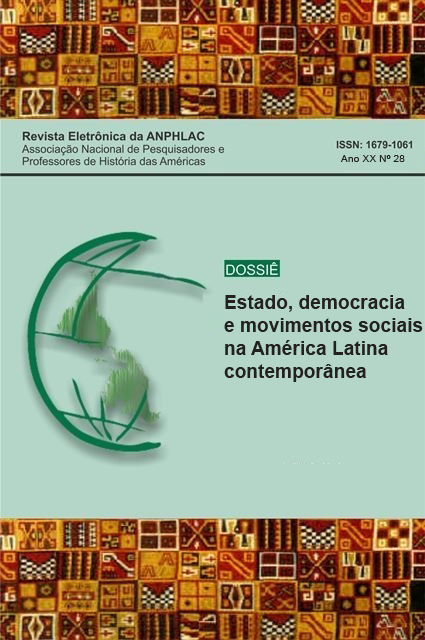Political Transformations of Colombia in the 21st Century: Conflict, Peace Agreement and its Domestic and International Effects
DOI:
https://doi.org/10.46752/anphlac.28.2020.3850Abstract
Abstract: Throughout the 21st century, Colombia went through several transformations in its domestic and foreign policy. Considered a discordant voice in South American integration project at the dawn of the new century, the neighboring nation leaned toward the region from 2010, aiming to reduce the distance and integrate more actively into South American processes by projecting a renewed identity. Adds to this scenario the peace agreement signed with FARC armed group, which helped to change perceptions about the country. This article analyzes the internal political processes that affected Colombia during this new century (2000-2019) as well as its relationship with the countries of the region and their insertion in South American integration projects. To this end, the governments of Andrés Pastrana (1998-2002), Álvaro Uribe (2002-2010) and Juan Manuel Santos (2010-2018) are analyzed. Finally, the on going changes and challenges faced by the new president, Iván Duque (2018-2019), in domestic and foreign policy are presented with special emphasis on South American policy.
Keywords: Colombia. Domestic Policy. Foreign policy.
Downloads
Downloads
Published
How to Cite
Issue
Section
License
a. Cessão de direitos autorais
Venho, por meio desta, ceder em caráter definitivo os direitos autorais do artigo "____________", de minha autoria, à Revista Eletrônica da ANPHLAC e afirmo estar ciente de que estou sujeito às penalidades da Lei de Direitos Autorais (Nº9609, de 19/02/98) no caso de sua infração. Autorizo a Revista Eletrônica da ANPHLAC a publicar a referida colaboração em meio digital, sem implicância de pagamento de direitosautorais ou taxas aos autores.
b. Declaração de ineditismo e autoria
Atesto que o artigo ora submetido à Revista Eletrônica da ANPHLAC, intitulado "________________________", de minha autoria, nunca foi publicado anteriormente, na íntegra ou em partes, dentro do país. Vindo a ser publicado na Revista Eletrônica da ANPHLAC, comprometo-me a não republicá-lo em qualquer outro veículo editorial.






